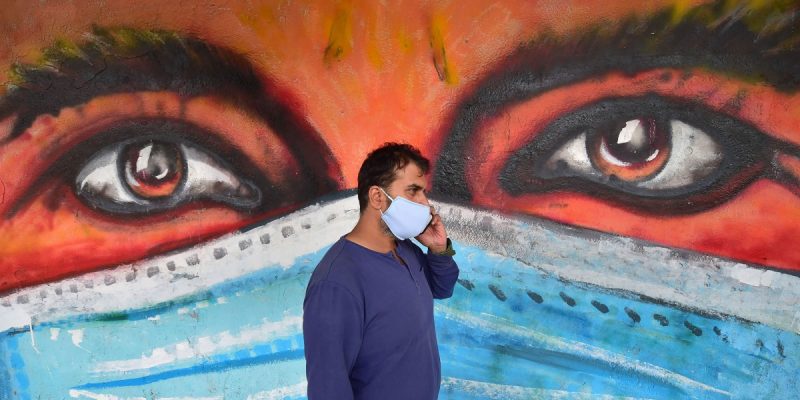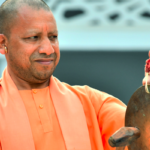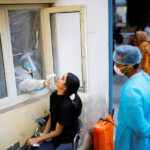The COVID-19 pandemic is an unprecedented and defining global health crisis. It is the greatest challenge humankind has faced of late. But the pandemic is much more than a health crisis – it has fundamentally changed our lives and the way society functions. Trying to manage a normal life today is difficult, more so for individuals with chronic ailments. The lockdown and its economic and social implications are just unfolding, and are terrible to say the least.
COVID-19 has deeply impacted the way we perceive our world and our lives. But any crisis in human society leads to new a chance for beginnings, and could even lead to adaptive, long-term actions that may change things for the better. Here, we’d like to highlight some such changes we have seen, and others we predict, in Indian society that may lead to a better future for the country as a whole.
1. Importance of hygiene – In the past hygiene was neglected in Indian society. The ‘Swachh Bharat Mission’ had built toilets at an unprecedented scale. However, COVID-19 has taught us to wash our hands properly and frequently. Proper hand-washing will prevent many diseases, including gut infections like cholera, typhoid, diarrhoea, dysentery, etc., and other viral infections. Hand-hygiene could extend to other types of hygiene behaviours that may keep many skin problems away. Of course, other supportive interventions – like the availability of water, soap and proper waste-water disposal systems – are needed to universally implement the hand-washing advice.
2. Preventing other respiratory diseases – Wearing masks and cough and sneeze etiquettes could help prevent respiratory diseases, including tuberculosis and influenza. It may also reduce dust and smoke inhalation, and the chances of contracting diseases induced by pollution and allergens.
3. Impact on health services – Most healthcare workers have been trained in standard protocols for infection prevention and control at health facilities. The use of PPE has become nearly conventional. The health system also made some efforts to develop capacity for new hospitals in record time. Personnel have also been accustomed to tracking infectious disease in the community through community contact tracing, quarantine and isolation.
Up-skilling of technical and non-technical staff also happened at an unprecedented scale; this could go a long way towards improving the quality of health services. Certain medical specialties that have been neglected thus far, like pulmonology, intensive care, microbiology and immunology, have moved closer to the mainstream and their importance is better understood.
One area of improvement: Many healthcare workers have been hired on temporary contracts, without proper employment benefits and at low salaries. They need to be moved to permanent contracts and more well-defined, secure benefits commensurate to the importance of their work.
4. Physical distancing – Crowds enjoy a certain pride of place in Indian society: the larger the crowd, the more successful some events are seen to be, like weddings and political rallies. With COVID-19, people have become warier of such showmanship, especially when it is unproductive. It’s also possible that a greater appreciation for personal spaces may develop. This said, urban planners and administrators will have to ensure residential areas don’t become crowded, with policies and schemes to keep housing poverty in check.
5. Avoiding face to face contact – Remote working and digital transactions have become more popular, as have virtual conferences. Even the more traditional organisations, which have been resistant to change, like India’s courts have conducted work through video-conferencing. There are two obvious caveats here, of course: of the informal sector, including street vendors and manual labourers, who have to do physical work and can’t work from home, and online education, which – without the right provisions and safeguards – may threaten to leave those without the requisite access to technology behind.
6. Importance of public health – India in general has struggled to understand what ‘public health; and ‘epidemic control’ really meant. Our political and bureaucratic systems don’t understand public-health functions well. But over the last five months, we have received a crash-course in epidemiology, public health and preventive medicine. ‘Flattening the curve’ and ‘quarantine’ have become household terms. Hopefully, we won’t forget these lessons quickly, and will as a society value public health and invest more in it.
7. Rapid adaptation and development of technologies – To address the COVID-19 pandemic, many medical and allied technologies have been needed, including ventilators, digital thermometers, sanitisers and PPE kits. This has spawned new industries that replaced imports with local manufacturing. There is a lot of scope to indigenously produce lab equipment and other medical equipment, and export them, once the pandemic ends.
8. Social media communication for health – As person-to-person contact and communication became impossible, many doctors, researchers, technical experts and others have taken to the social media to communicate scientific ideas and community-oriented information on a regular basis.
10. Home delivery services – As shops closed and people avoided getting out, the home-delivery business picked up to provide all kinds of products and services. However, there is significant room for improvement in terms of securing the rights and benefits of food-delivery workers and make sure they are not exploited.
11. Brining family closer – Due to the lockdown, with more people working from home, family members have had more time to spend with each other. But on the flip side, some people have also experienced this trend as a ‘constraint’ that has increased their exposure to domestic violence.
12. Impetus to joint global research on infectious diseases – In the past, global research was focused largely on chronic diseases like heart disease, diabetes and stroke. But thanks to COVID-19, and under the leadership of the WHO and others international entities, several multi-centric research protocols have been developed, and research collaborations have also taken root.
13. Faster vaccine research – Vaccine development typically takes 8-10 years, but during the pandemic, this process has been fast-tracked to the extent that we expect to have a COVID-19 vaccine some time next year. At the same time, some institutions and governments have attempted to skip important safeguards. This is not fair or ethical, and will significant impact patient trust and safety.
14. Data-sharing and mathematical modelling – The pandemic has motivated efforts to share national and regional data, and based on which many statisticians, mathematicians and epidemiologists have developed simple to complex models of infectious disease transmission. Many of these models have helped predict the course of the epidemic, and the interventions required to arrest its progression. Such efforts are still patchy, but there is enough reason to hope that India will catch up. These skills could also help with future disease outbreaks. But we must ensure that the models and their assumptions and methods are fully explained and available for independent scientific scrutiny.
15. Decreasing consumption – During the lockdown, healthy, homemade food replaced junk food; and poorer access to shopping malls and other commercial centres, cut consumption. As the air quality also improved, many people realised the difference that having a clean and healthy environment can make.
16. Digital education – Thanks to the lockdown, numerous schools and colleges moved their classes and instruction online, and modernised teaching techniques to adapt to the digital media. This will have a far-reaching impact, and there are ways to ensure they will lead to positive outcomes. Modes of education like ‘distance education’ and tele-education have traditionally been looked down on, as poor cousins of classroom teaching. But by investing more in distance learning, we can legitimise them further, and make them more accessible and less cost-intensive.
17. Health as a fundamental input to the economy – Thus far, health has been seen as a social welfare function and not a fundamental input to economy. Land, labor and capital have been the three key inputs. Now, thanks to the pandemic as well as the lockdown, societies are realising the importance of health and disease control as being fundamental to a working and productive economy. So we hope that in future, the health ministry has more funding and autonomy, as well as more political, social and economic support.
18. Digital information transfer – During the lockdown, for some time, even newspapers had stopped being delivered, rendering television and the internet the principal channels of information exchange. Social media platforms also offered a great advantage, in the form of two-way communication between content producers and consumers, which is not possible with TV.
19. Visibility of migrant labourers – India’s usually invisible population of migrant labourers and daily-wage workers became very visible shortly after the national lockdown took effect in late March. Many of these workers returned to their native towns and villages, and are unlikely to return to the cities where they previously worked, so it has become important to upgrade employment opportunities in their native places. In addition, the government also needs to improve the conditions in which these workers typically live and work, and enhance their social security.
20. Dignity of household work – During the lockdown, domestic help was in very short supply, and all family members had to share their household work, including caring for children and the elderly. As a result, we hope people have internalised the value and intensity of domestic work.
Dileep Mavalankar is director and Ragini Dongre an alumna – both of IIPH Gandhinagar.




